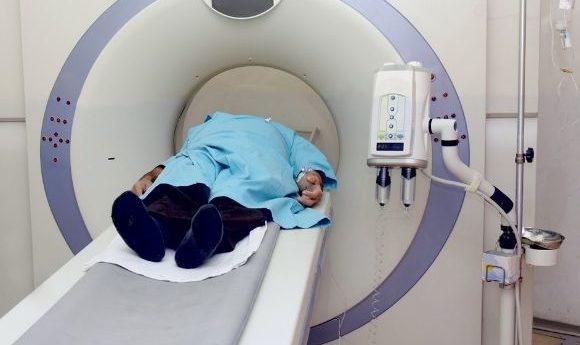Downsizing MRI scanners

The development of liquid helium-free MRI scanners could increase laboratory space and reduce costs for researchers.
Lack of space in laboratories has always been a problem for researchers, resulting in any large, bulky or heavy equipment having to be housed elsewhere. Now, MR Solutions (Guilford, UK) have made significant movement to overcome this.
The company are the first to develop liquid helium-free, pre-clinical, high-field MRI scanners available in a range of MRI and multi-modality MRI scanners (with PET and SPECT modules) from 3T up to 9.4T.
Using a liquid helium-free magnet system as opposed to the traditional wet superconducting magnets significantly reduces the size and weight of MRI scanners, without compromising on the image quality.
“One of the driving forces in the development of liquid helium-free technology was the availability of space which traditionally has been a problem for many of our clients,” remarked David Taylor, chairman at MR solutions. “What is particularly exciting from our point of view was that in redesigning the MRI scanner we were able to upgrade the image quality so that performance is unsurpassed.”
However, size reduction isn’t the only benefit provided by this system. By placing a solenoid on the casting, the stray magnetic field can be reduced to just a few centimeters which significantly reduces the workers’ risk of exposure.
-
Imaging dementia: can MRI predict cognitive decline?
-
How can we increase reproducibility in neuroscience studies?
-
Could MRI scans predict disease progression in multiple sclerosis?
This ground-breaking technology should also help to reduce laboratory costs as they do not require continuous top-ups of expensive helium and can be introduced to labs without the need for any building alterations.
Furthermore, as these MRI scanners do not require an external exhaust and have such a reduced stray magnetic field, they would be suitable for use in class 3 and 4 laboratories.
MR solutions has been recognized for their contributions to the field with their innovative technology. Just recently, the company was honored with their third Queen’s Award for Enterprise for their PET module.
“We are really delighted to receive this prestigious award for our innovative technology. The whole drive of our company is to be at the cutting edge of science and to offer researchers the latest proven technology as these scanners will have to last many years,” Taylor explained. “We have a really talented team of scientists and engineers who are constantly pushing the boundaries which will have the effect of both speeding up and improving new treatments for millions of people.”